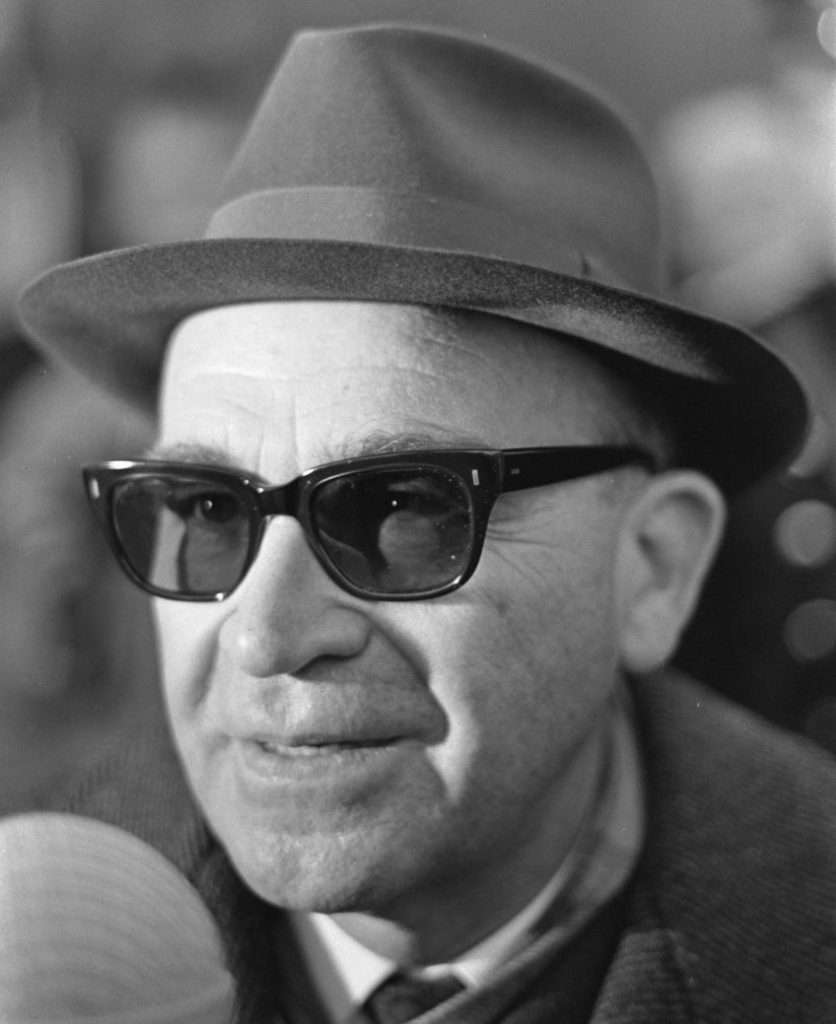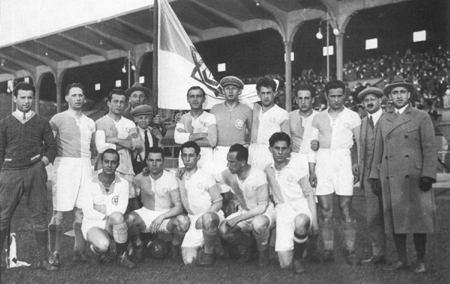Béla Guttmann – The Greatest Comeback
The Greatest Comeback: From Genocide to Football Glory – The Story of Béla Guttmann is a compelling account of one of the great football managers, and a man whose life encompassed much of the tragedy and turbulence of the twentieth century. Charting the career of this Hungarian Jew and Holocaust survivor, author David Bolchover interweaves his personal history with that of the Jewish people. He also demonstrates how far ahead of his time Guttmann was, drawing parallels with managers of the modern era in his attention to detail, insistence on fitness and preparation, astute psychology and handling of the media. He also illustrates how Guttmann’s travels, not only within Europe, but in both North and South America, anticipated the global trend that now defines football’s worldwide reach. Guttmann comes across as a troubled, restless character, impatient and forever in search of a fresh challenge.

The first part of the book is a memorial to the lost world of Jewish pre-War Central Europe. As he traces Guttmann’s progress from Budapest, where he played for the predominantly Jewish club MTK, to the legendary Zionist-inspired Hakoah Vienna, Bolchover redresses the often overlooked contribution of Jews to European football, just as Anthony Clavane did for the English game in Does Your Rabbi Know You’re Here? He recounts a litany of mostly-forgotten names of clubs, managers, owners, and players, many of whose lives were to end at Auschwitz. The achievements of Hugo Meisl, coach of the Austrian ‘Wunderteam’ of the 1930s, Richard ‘Dombi’ Kohn at Bayern Munich, Barcelona and Feyenoord, Izidor Kürschner in Brazil, and Ernő Erbstein, a fellow Holocaust survivor who died in the Torino air crash of 1949, among many others, are restored to their historical place. There is also a glimpse of New York before the Depression, where Guttmann spent several years from the mid-1920s, and the short-lived flourishing of the American Soccer League.
Bolchover’s extensive research sheds new light on Guttmann’s return to Europe and extraordinary survival in the war years as disaster engulfed the world he had known – he lost several close family members in the Holocaust. His astonishing resilience enabled Guttmann to resume a burgeoning coaching career immediately after the War, though his time in Italy, where he managed AC Milan among others, was also shadowed by tragedy. His subsequent spell at São Paulo had a major influence on Brazil’s first World Cup triumph of 1958, when they were coached by Guttmann’s assistant Vicente Feola, who publicly credited his methods. Guttmann’s greatest triumphs, the successive European Cups he won with Benfica in 1961 and 1962, are studied in detail. This achievement ranks even higher given that Portugal was still something of a football backwater at the time (none of its representatives had previously progressed beyond the First Round of the competition), and he was restricted only to players eligible for the national side, itself yet to qualify for a World Cup.

Béla Guttmann, 1966 
Hakoah Vienna, 1926
While many of the parallels with the modern game are valid – Guttmann blazed a trail for the global mobility of players and managers, with many short stays reminiscent of José Mourinho, as well as embracing scientific methods of training and diet – he was also a product of his age. His teams played all-out attacking football, as evidenced by the score-lines of his European Cup Finals with Benfica, won 3-2 and 5-3. He scorned the cautious, defensive tactics which were creeping into the game toward the end of his life; in 1980 he was quoted as saying “Please let us remember the European Cup stands for great teams. And it should be about great players.” Guttmann also worked in an era where the manager (and club) held almost total control over their players, dictating terms of contracts, transfers, and wages. On his return to Benfica in 1965, Guttmann is reputed to have expressed concern immediately: “The players are rich. I don’t like this.” For a manager who relied on his ability to influence the dressing-room, often rebuking star players to make his point, the growing financial rewards and increasing player-power would have surely undermined Guttmann’s authority.
Bolchover expertly balances Guttmann’s role as a footballing pioneer, who regularly appears in polls of the greatest ever-managers, with an insight into the life and times of a complex man. This biography is essential for an understanding of Guttmann’s career and ongoing influence; his wider achievement is in placing Béla Guttmann firmly in the context of Jewish twentieth-century history.

Béla Guttmann was born on 27 January, 1899, in Budapest, and died in Vienna on 27 August, 1981. His birthday is now Holocaust Memorial Day.